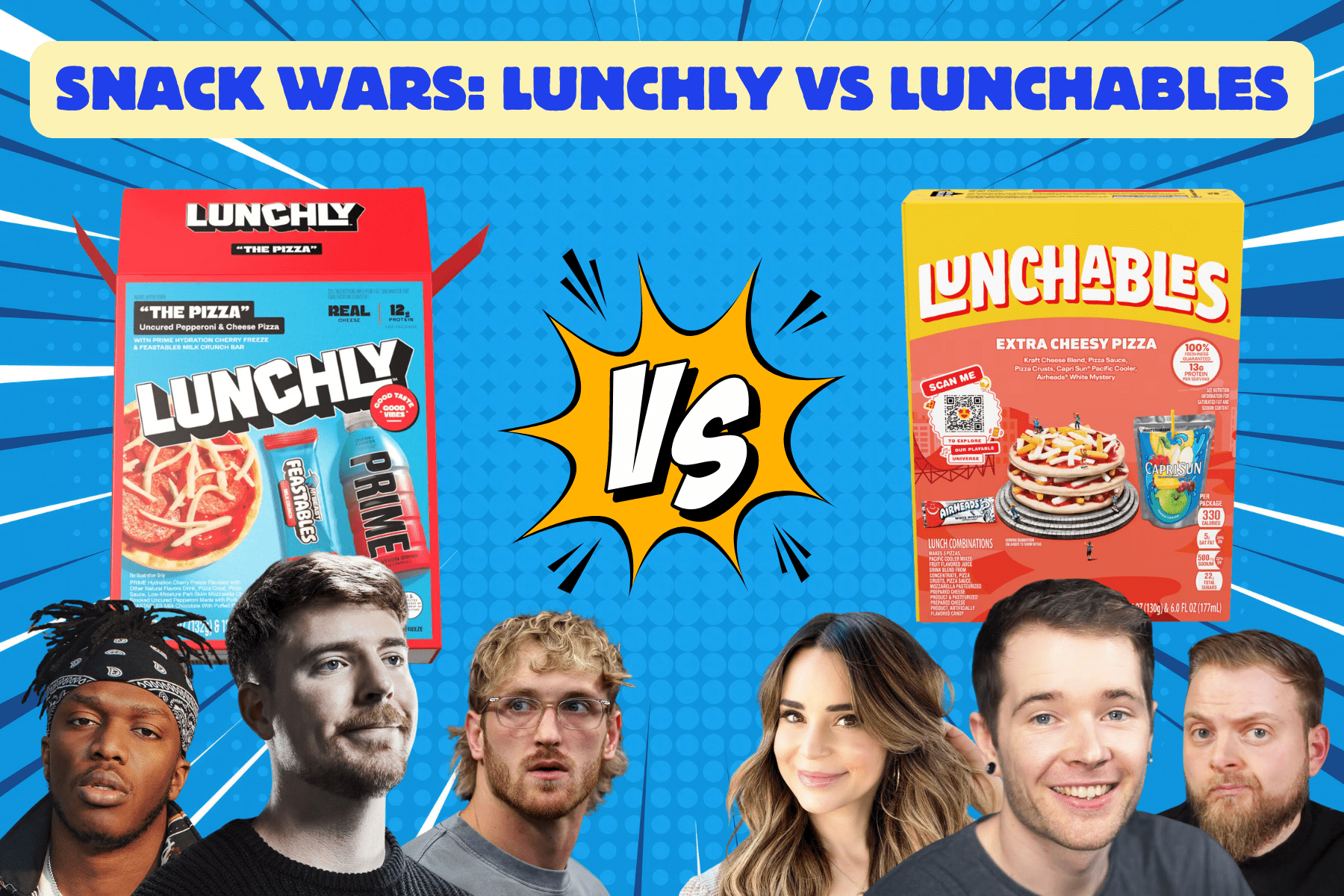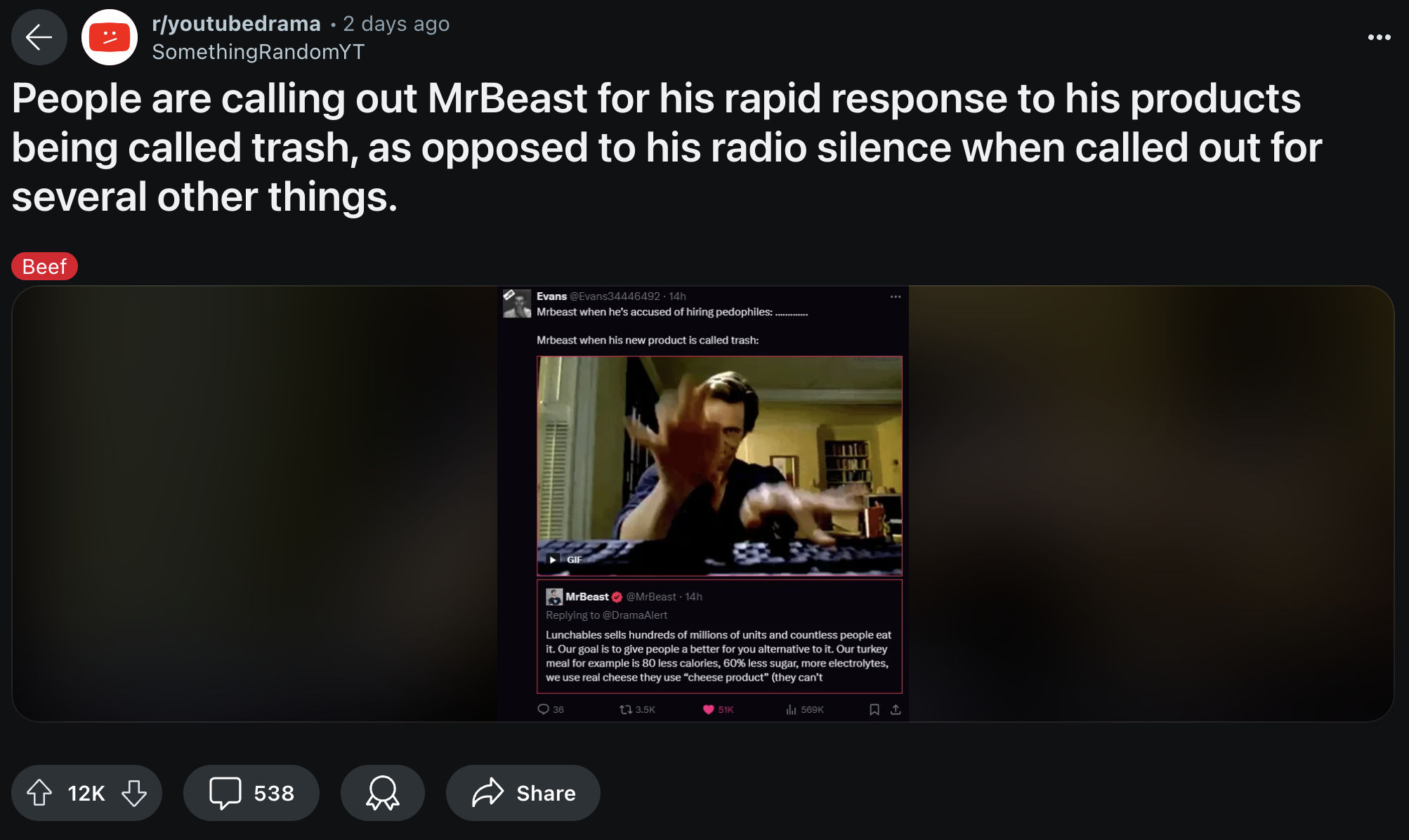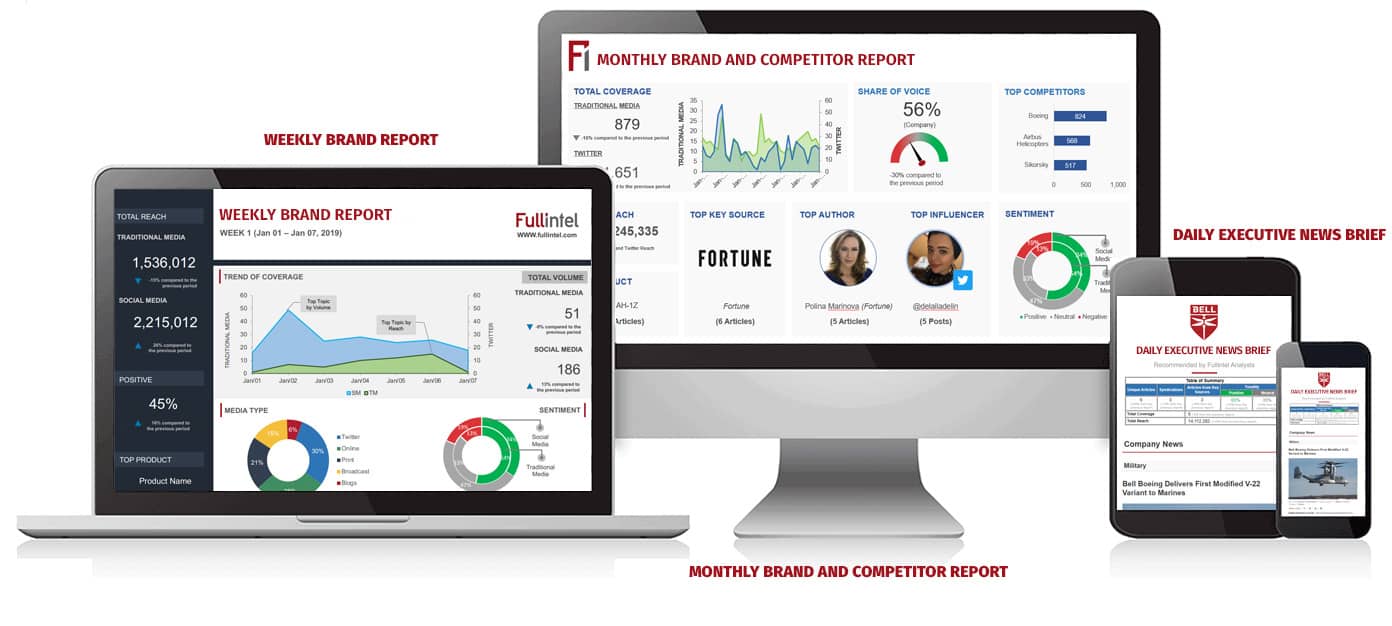
Lunchly: The YouTube Power Trio’s Controversial Launch Sparks Debate
Amid the current media controversies surrounding P Diddy and the US election, a uniquely online drama has taken center stage with the launch of Lunchly. This new pre-packaged meal brand, introduced by YouTube sensations MrBeast (Jimmy Donaldson), Logan Paul, and KSI (Olajide Olatunji), has been marketed as a healthier alternative to the well-known Kraft Heinz Lunchables. However, it wasn’t long before Lunchly became the focus of a heated debate, led by Minecraft YouTuber DanTDM (Daniel Middleton), who questioned the ethics behind the product. The backlash has since ignited discussions about the responsibility influencers have when marketing products to young, impressionable audiences.
The Build-Up: A Powerful Collaboration
Lunchly brings together the individual ventures of these mega YouTube stars, offering what they claim to be a “better-for-you” meal option. Packaged with a Prime hydration drink, a Feastables chocolate bar, and a variety of snacks, the trio’s loyal following—especially among younger viewers—turned the product launch into an instant sensation. However, it didn’t take long for DanTDM to voice his concerns, questioning why influential creators were using their platforms to promote processed food, particularly to children.
DanTDM’s criticism struck a chord with many, fueling a larger conversation about the ethics of influencer marketing. Social media quickly became a battleground, with users expressing frustration over what they saw as the trio exploiting their young fanbase for profit.
Key Criticism: Exploiting Young Audiences?
At the core of the Lunchly controversy is the debate around YouTubers marketing products to young, impressionable fans. Critics argue that MrBeast, Logan Paul, and KSI are leveraging their influence to sell energy drinks and candy bars under the guise of healthier alternatives. Rosanna Pansino, known for her YouTube baking series Nerdy Nummies, and iBallisticSquid (David Spencer) have also expressed their concerns, questioning the ingredients and nutritional claims of Lunchly. While the product may boast lower calories, many feel that doesn’t necessarily make it a better choice, especially for children who need more balanced nutrition in their meals.
This conversation has extended to whether creators are applying adult dietary standards to products aimed at children. Critics, including Pansino and Spencer, point out that kids require higher calorie and nutrient-dense meals to support their growth, making Lunchly’s “healthy” branding potentially misleading. The controversy raises broader questions about how responsibly creators are using their platforms, particularly when the products they promote could impact the health and well-being of their audience.
The Role of MrBeast and Brand Criticism
Much of the discussion around Lunchly has also focused on MrBeast, who, alongside his entrepreneurial ventures, has come under fire for prioritizing profit over product quality. Some critics have speculated that, much like his previous Feastables brand, Lunchly might feature collectible elements or promotional giveaways to drive sales among his young fanbase.

Further frustration has stemmed from the timing of MrBeast’s response to the Lunchly criticism. While he was quick to defend the product, many have pointed out that he has remained silent on more serious controversies in the past. This perceived imbalance in how he handles public criticism has led to questions about his priorities, with some feeling that his focus on defending Lunchly emphasizes the protection of his business interests.
The Broader Debate: YouTube’s Changing Culture
The Lunchly controversy has also reignited a broader conversation about the evolution of YouTube itself. DanTDM’s critique reflects a growing dissatisfaction with the platform’s shift from community-driven content to brand-focused ventures. Many longtime fans are nostalgic for the days when creators were focused on making authentic content, rather than building commercial empires.
This shift, led by creators like MrBeast, has contributed to a more corporate atmosphere on YouTube, where profit and brand-building sometimes take precedence over genuine connections with audiences. This transformation has left many questioning the future direction of YouTube culture and how it will balance monetization with content creation.
In the midst of this, YouTube’s recent decision to play ads during paused screens on TVs has also sparked discussion. While this move aligns with the platform’s strategy to optimize revenue, it brings attention to the fine balance between user experience and monetization on digital platforms.
Takeaways from the Lunchly Debate
The Lunchly controversy provides valuable insights into the evolving role of creators and the ethical responsibilities they hold when marketing to their audiences:
- Ethical Marketing: Creators launching products aimed at young audiences must carefully consider the ethical implications. In Lunchly‘s case, concerns were raised about whether the product’s health claims matched the reality of its ingredients.
- The Power of Public Sentiment: Public perception can shift quickly in the digital age. The rapid backlash to Lunchly demonstrates how influencer-driven products can face intense scrutiny, particularly when fans feel they’re being exploited.
- Accountability: The Lunchly launch also highlighted the importance of accountability. MrBeast’s swift defense of his product contrasted with his silence on other issues, leading to further criticism and raising questions about his priorities.
Curious to keep the conversation going about the latest trends and digital controversies? Feel free to connect with me!


